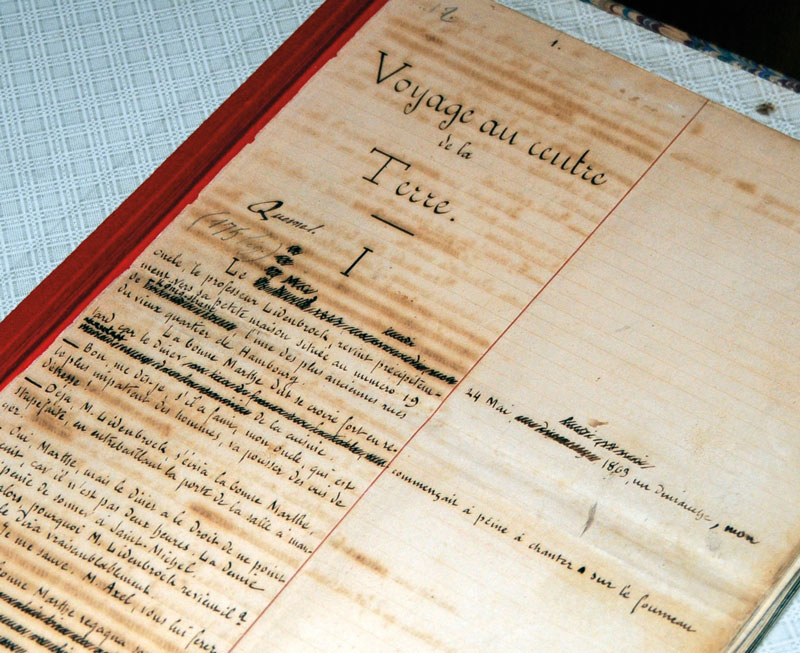High Spots in Human Progress
“People are at the house all the time, bringing in books, bringing in books, bringing in books,” according to Rose’s wife Mimi, who is not a collector herself, but is totally comfortable with the dynamic that drives her husband. “He may have five copies of the same book,” she added, “because he is always looking for the perfect copy.” That would explain the three copies of Catcher in the Rye shelved next to each other, the quality progressively better from one to the next, the third, in perfect condition, and inscribed by J.D. Salinger.
“There’s nothing I don’t have that I want,” Rose conceded, “but there are a few things I don’t have in first edition that I do want. Like Cervantes, that’s at the top of my list, and Gutenberg, of course. I try to keep the finest copy in private hands in my library, which in most cases I think I have.” While books are certainly central to the collection, there is a significant presence of manuscripts, typically, wherever possible, in the hand of the notables he collects. Some highlights: the holographic copies of Jules Verne’s Voyage to the Center of the Earth, Frank Lloyd Wright’s autobiography, Arthur Conan Doyle’s manuscript for The Valley of Fear, the annotated typescript of Alex Haley’s Autobiography of Malcolm X.
There are numerous unique materials in the Rose collection of particular interest to researchers, the manuscripts just mentioned, of course, but also marginalia in printed books such as the annotations in his copy of Andreas Vesalius’ monumental De humani corporis fabrica libri septem (On the Fabric of the Human Body), 1543. While maintaining what he calls an “open library” by allowing visitors to handle and admire his books, Rose said there are limits to what he will permit. “The problem I have with scholars is they want to tear everything apart,” he said. “They want to turn the books back so they can look at everything, and I find that destructive, so I don’t allow it. I want to save history. That is why I am a collector—first and foremost, a collector.”
A native of New Orleans, Rose received a graduate degree in business from Emory University in 1976, and in 2009 established REX American Resources Corp, a public alternative energy company based in Dayton that operates seven ethanol refineries. The stunning success of another enterprise he established in the early 1980s, Rex Radio & Television, Inc.—he turned four stores that sold electronic equipment into a chain of 125 retail outlets operating in twenty-three states—enabled him to start collecting seriously while in his thirties.
But why focus on books, I wondered, and not paintings, which he could clearly buy at a high level, if he chose to do so? “I collect books because I can afford to buy the greatest and the best that’s in existence, and I couldn’t do that in art,” he said. “I love books, too, because they are what made the world. Art is what is popular one day and not necessarily popular the next. You actually learn something while you’re collecting books, and you have a lot of fun while you’re doing it. So what’s not to like about that?”








